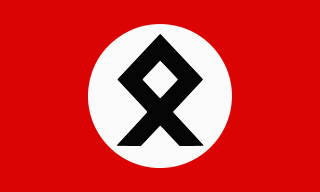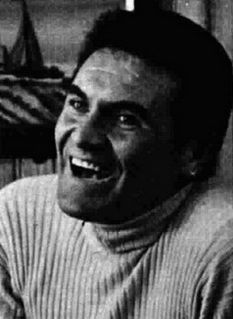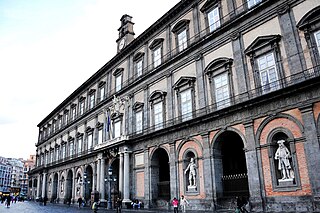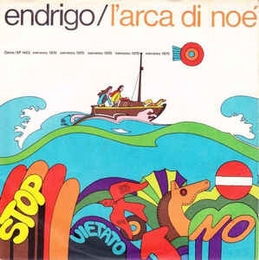Related Research Articles

The Piazza Fontana bombing was a terrorist attack that occurred on 12 December 1969 when a bomb exploded at the headquarters of Banca Nazionale dell'Agricoltura in Piazza Fontana in Milan, Italy, killing 17 people and wounding 88. The same afternoon, three more bombs were detonated in Rome and Milan, and another was found unexploded. The attack was carried out by the far-right, neo-fascist paramilitary terrorist group Ordine Nuovo and, possibly, certain undetermined collaborators.

The National Vanguard is a name that has been used for at least two neo-fascist and neo-Nazi groups in Italy.
Ordine Nuovo, was an Italian far right cultural and extra-parliamentary political and paramilitary organization founded by Pino Rauti in 1956. It had been the most important extra-parliamentary far-right organization of the post-war Italian republic.
Vincenzo Vinciguerra is an Italian neo-fascist activist, a former member of the Avanguardia Nazionale and Ordine Nuovo. He is currently serving a life-sentence for the murder of three Carabinieri by a car bomb in Peteano in 1972. The investigation in this previously unsolved affair by prosecutor Felice Casson led to the revelation of "Gladio" networks around Western Europe.

Jimmy Fontana was an Italian actor, composer and singer-songwriter. Two of his most famous songs are "Che sarà", performed also by José Feliciano with Ricchi e Poveri and "Il Mondo".

Giovanni "Gianni" Meccia is an Italian actor, composer, and singer. He is usually associated with Jimmy Fontana.

Ricchi e Poveri is an Italian pop group formed in Genoa in 1967, consisting of Angela Brambati, Angelo Sotgiu, Franco Gatti and Marina Occhiena. Active since the late 1960s, they have sold over 20 million records.

Sant'Ambrogio di Torino is a comune (municipality) in the Metropolitan City of Turin in the Italian region Piedmont, located about 25 km west of Turin in the Susa Valley.

The Royal Palace of Naples is a palace, museum, and historical tourist destination located in central Naples, southern Italy.

Salvatore Antonio "Rino" Gaetano was an Italian musician and singer-songwriter. He is famous for his satirical songs and oblique yet incisive political commentary. He is remembered for his rough voice, for the heavily ironic lyrics of his songs and his social protests. He died in a car accident at age 30. He was a popular and influential figure, widely re-evaluated by the following teen generations.

Vinicio Capossela is an Italian singer-songwriter, poet and novelist.

Barberini–Fontana di Trevi is an underground station on Line A of the Rome Metro, inaugurated in 1980 and situated under Piazza Barberini in Trevi. Originally, the station was simply named Barberini, but the name was extended in 2000.
The decade of the 1540s in music involved some significant events.
Giovanni Tommaso Cimello was a poet, musician, composer, and musical theorist employed by the Colonna family and active at the Aragonese Corts in Naples.

Agostino Capozzi, known professionally as Mario Trevi, is an Italian singer and actor.
Vincenzo Fontana may refer to:
Sorelle Fontana is an Italian fashion house, specializing in production of high-fashion couture.
Micol Fontana was an Italian stylist and entrepreneur.

"L'arca di Noè" is a 1970 song composed by Sergio Endrigo. The song premiered at the 20th edition of the Sanremo Music Festival, with a double performance by Endrigo and Iva Zanicchi, and placed at the third place.

Vincenzo Ferdinandi was an Italian designer among the founders of Italian Haute couture.
References
- ↑ Robert Murrell Stevenson Spanish Cathedral Music in the Golden Age. 1961 p217 "Pisador had intabulated ten canzoni villanesche by Vincenzo Fontana and Willaert; Fuenllana had intabulated three — one each by Giovane Domenico da Nola, Fontana